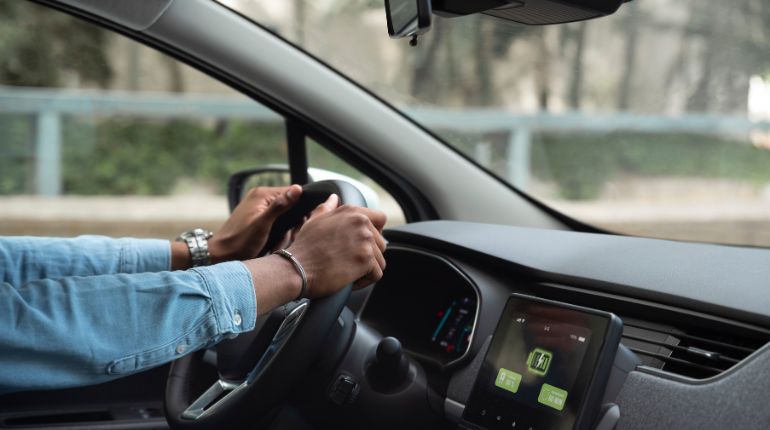Cars have become an indispensable part of student life, providing daily conveniences while simultaneously contributing to various aspects of academic pursuit. Their impact can be felt across comfort, social dynamics, and overall lifestyle aspects.
Table of contents
- 0.1 1. Commuting Efficiency:
- 0.2 2. Independence and Autonomy:
- 0.3 3. Social Connectivity:
- 0.4 4. Time Management:
- 0.5 5. Job Accessibility:
- 0.6 6. Balancing Academics and Lifestyle:
- 0.7 7. Campus Exploration:
- 0.8 8. Family Visits:
- 0.9 9. Challenges of Car Ownership:
- 0.10 10. Environmental Considerations:
- 0.11 11. Parking Challenges:
- 0.12 12. Alternatives to Car Ownership:
- 0.13 13. Technological Integration:
- 0.14 14. Future Trends:
- 1 Conclusion
1. Commuting Efficiency:
Cars provide reliable and cost-effective transportation, offering students who reside off campus the flexibility of flexible schedules, a reliable mode of transport that helps reduce commute times. They’re particularly helpful for managing expansive university grounds – their convenience allows students to transition seamlessly from academic commitments to personal responsibilities without missing out.
2. Independence and Autonomy:
Student car ownership provides them with an extraordinary sense of independence and autonomy, beyond campus walls. Students can embark on adventures of discovery to navigate surrounding areas at their own pace – whether exploring local amenities, seeking job opportunities or relaxing at recreational spots; their car becomes an emblem of freedom that allows them to chart a course beyond academic routine.
3. Social Connectivity:
Cars serve as catalysts of social connectivity, turning routine road trips into life-altering adventures and mundane outings into bonding experiences. They also serve as vehicles for group activities, road trips, and spontaneous gatherings, which foster stronger friendships. This allows students to participate actively in campus and off-campus social events while strengthening a sense of community. Such connectivity can always help, for instance see essay services reviews if you need academic assistance.
4. Time Management:
Car commuting offers students a valuable resource: time. Time is essential when managing classes, part-time work, and extracurricular activities in a student life environment with its many demands and commitments; cars facilitate this process, helping ensure a more equitable distribution of available time between different commitments.
5. Job Accessibility:
Owning a car expands job-seeking options for students working part-time jobs or internships beyond campus boundaries, helping to expand professional growth and financial independence for both themselves and future employers. Car ownership also opens doors to opportunities beyond academia – becoming an anchor point to connect them with broader career pathways that align with student aspirations beyond academia.
6. Balancing Academics and Lifestyle:
Cars offer students a way to maintain a balanced approach between academic pursuits and their personal lifestyle choices. Students with vehicle access can easily manage daily tasks such as grocery shopping, errands, and individual activities without being subject to public transportation schedules. This makes for a more seamless integration of academic pursuits into daily living choices. And if you face time constraints, also check out essay service reviews by scamfighter.
7. Campus Exploration:
Owning a car on campus transforms campus life into an exploration canvas. No longer limited to classroom lectures, students can use their vehicle to attend events, discover local attractions, and take part in community service activities – further enriching their college experience while encouraging full immersion into campus life!
8. Family Visits:
Cars provide students living away from home with easy access to visit family on holidays or weekends, becoming essential components of emotional well-being that provide grounding and support in academic life.
9. Challenges of Car Ownership:
Though owning a car offers many advantages, it poses its own financial challenges for students. Maintenance, fuel, and parking expenses can stretch tight student budgets significantly – requiring them to strike a delicate balance between convenience and financial implications, leading them to make informed decisions.
10. Environmental Considerations:
As students become more environmentally aware, some opt for eco-friendly alternatives to conventional car ownership such as electric or hybrid vehicles, carpooling or public transit as a sustainable living principle and to minimize environmental impact associated with traditional car ownership.
11. Parking Challenges:
Student car ownership presents unique parking challenges on campus. Insufficient spaces can become a significant source of stress; these students work around these hurdles by devising innovative parking solutions and exploring alternative transport methods.
12. Alternatives to Car Ownership:
As environmental concerns and budget constraints prompt students to explore alternate modes of transport, students have begun exploring bicycles, scooters, and public transit as sustainable and cost-effective solutions to car ownership. This shift demonstrates a larger commitment towards eco-conscious living and financial responsibility. The same goes to picking the right service for writing, see essaypro promo code reddit
13. Technological Integration:
Technological advances play a pivotal role in revolutionizing student life with cars. Thanks to technological advancements that align with students’ tech-savvy preferences and enhance both the convenience and functionality of their vehicles, car-sharing apps, navigation systems, and connectivity features have become staples of driving experiences.
14. Future Trends:
As transportation landscapes change, cars will continue to have an enormously transformative effect on student life. New technologies like autonomous vehicles, ride-sharing services, and green transport solutions promise to radically reshape how students approach mobility. Their integration into society indicates an exciting and ever-evolving future for cars in student lives.
Conclusion
Cars play an invaluable role in student life by offering convenience, autonomy, and social connectivity. While these benefits are substantial, students still face hurdles such as costs, environmental considerations, and parking issues when driving their vehicles. With technology progressing and changing priorities affecting car usage in student lives in general.








